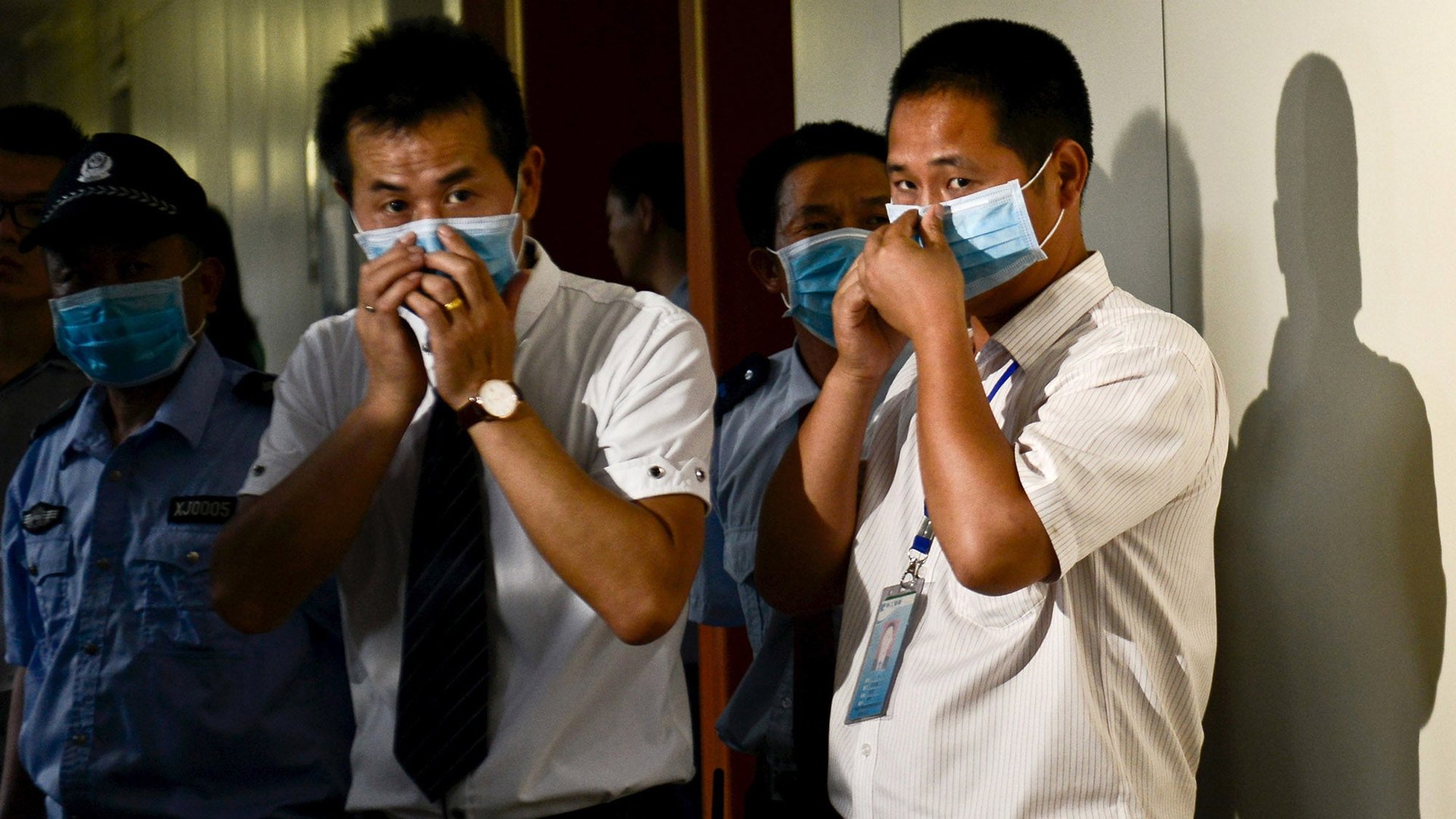Fear of a deadly virus has forced a Chinese hospital to assign nurses by lottery
A deadly contagious infection tends to cause panic when it hits a new country, a situation China is dealing with right now after a patient tested positive for MERS (Middle East Respiratory Syndrome).


A deadly contagious infection tends to cause panic when it hits a new country, a situation China is dealing with right now after a patient tested positive for MERS (Middle East Respiratory Syndrome).
On May 29, Chinese health authorities confirmed that the patient was a South Korean man who traveled to the southern city of Huizhou after seeing his father, who was also suffering from MERS. The man reported to have told Korean media (link in Chinese) that he knew he had a fever, probably because of the MERS virus, but didn’t declare it upon entering China because he was never asked.
His comments received a lot of negativity on the Chinese social-media site Weibo, with many commenters using the derogatory Korean slur bangzi (棒子).
The fear of the virus and the negative sentiment against the patient seem to have made nurses at the hospital reluctant to treat the patient, which in turn forced the hospital to draw lots to determine who should treat the patient. (The hospital claims the ballot was arranged because there were too many volunteers.)
About 67 people who came in contact with the South Korean man have been traced, and they are not showing any signs of the virus. In South Korea, there have been 17 positive cases of MERS and more than 680 people have been placed in isolation.
Although the first MERS case was identified in Saudi Arabia in 2012, we still didn’t how exactly it spreads. The World Health Organization says that close contact is needed for others to be infected, making the virus less efficient at spreading.
But the virus is still quite deadly. More than 1,100 cases have been recorded and 479 have died, according to the European Centre for Disease Prevention and Control.
Additional reporting by Josh Horwitz in Taipei.